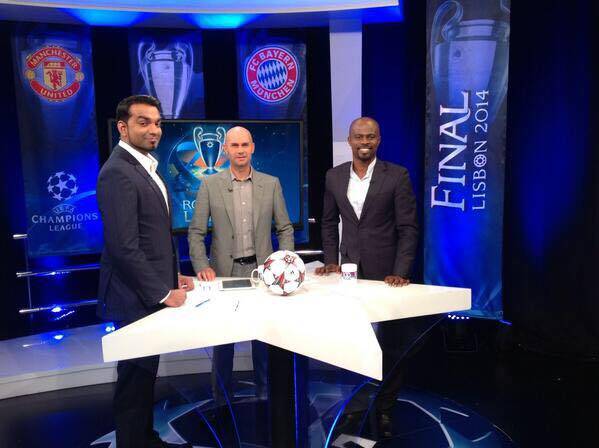
Adapted from Football Tribe Malaysia
Roshan Narayan is a figure often seen on the TV screen when you watch a big Premier League or Champions League game in Malaysia. Last week, we had a chance to see him. Roshan discusses experiences from his career and gives valuable insights into the world of football punditry.
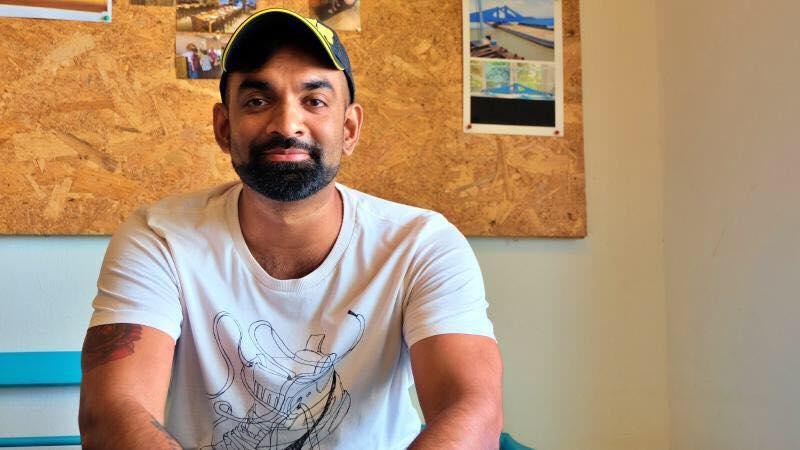
You were born in Malaysia, and raised in India during your teenage years and spent a lot of your time there for education. Why do you choose to come back to Malaysia afterward?
Many people think I was born in India, but in fact, my family and I were born in Malaysia. My mother and father moved to India because of their business and I followed them. I would always go back to Malaysia once every six months or once a year for a holiday. After I finished my degree, I told my parents that I wanted to go back to Malaysia and they were okay with my decision to move to Malaysia. When I returned to Malaysia I was 21, at that time the first company I entered was Planet Movies. I started from below as an assistant. My work involved a small job scope - brings wires, washing the table and make a drink for people. But I'm happy to did it even though the salary is not good at that time. It was a fun job but I did not get much money at that time. Years later, I switched to Public Relation. By the time I was doing PR, I got to do what I wanted - writing, understanding the world of advertising, understanding the world of the media. PR gave me the site to move and teach me how to write, mingle, deal with media and customers. After that I participated in a competition organized by Fly FM called Flydo, I managed to reach the top 10. But I failed to advance to the top five. When the winner was announced, one of Fly FM's staff came to me and said: "we know you did not go to the last five, but we believe you can be news distributor for Fly FM." Without thinking long, I stop working as PR and joined Fly FM. After that I went to Mix FM for three years as a presenter. In 2009, I got the opportunity to work for Astro Supersport and 10 years later I was interviewed by you (laughs).
Before entering TV presenting, you worked in radio. What is the difference between TV and Radio?
[There is] too much difference between radio and TV. On the radio I did much work on news and traffic, it was a good start for me at that time because when I opened my mouth I could not stop talking (laughs). What distinguishes radio and TV is radio no one can see you, if you do something wrong, you can fix it. But on TV, if you do something wrong, the whole world sees you and you can not hide from that mistake.
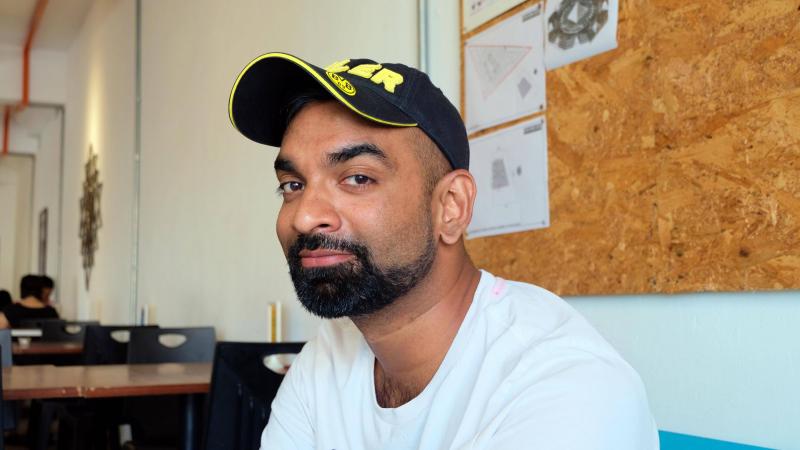
Everybody knows that being a TV host is not something that is easy, but you make it seem easy. What is the secret behind your success?
First, be yourself and always ask. Until now, I still ask a person who is more senior than I am. Second, always learn new things. If I have some spare time, I would go and watch last season's matches or I'll be reading the latest news. Everybody thinks its a fun job, its vice versa.
And everyone thinks you have a fun job, but what's the reality behind?
Anyone who joins the industry, I always advise them to always be prepared for a lot of competition in the industry today. Sometimes you do not make a mistake, but there are people who are always looking for your faults. They criticize you on social media. Beyond that, learn as much as you can in order survive in this cruel industry. You have to learn to be more positive.
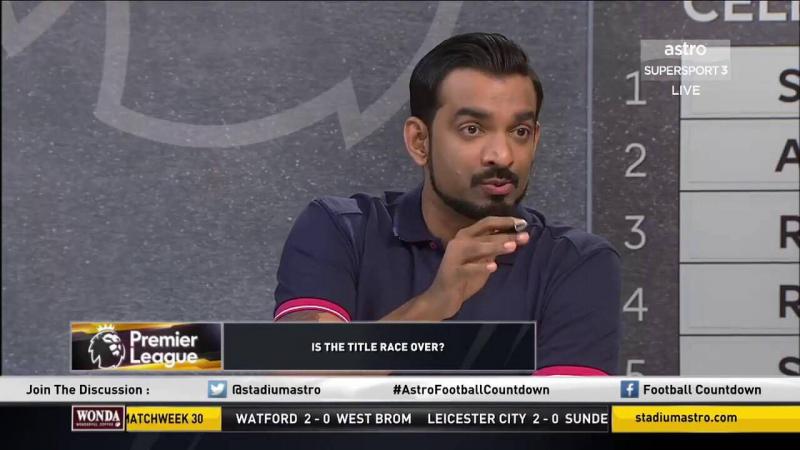
You have met many football players, who are you the most difficult to interview?
I do not think they are hard to interview, but sometimes when a football player comes here often their PR team will tell you questions that can and can not be asked. But once they are on TV they need to answer every question you ask. There are some football players who avoid answering questions as they are still working for the club. So what I do is ask questions where the answer is either yes or no. It is not hard to work with and cooperate with players unless they are new - [and ultimately] it is my job to make them look good.
Do you have a routine before hosting a big game?
What I will do is come early. If they call me at 8 pm, I'll be up to 3 or 2 hours early. This helps me calm myself. I'll sit talking to the crew, or see my friends hosting their game. If there are any pundits who come early, I will sit with them. But what is most important is the preparation before that. Often the day before the game I will prepare all my things, [such as the] pre-match studies and analysis.
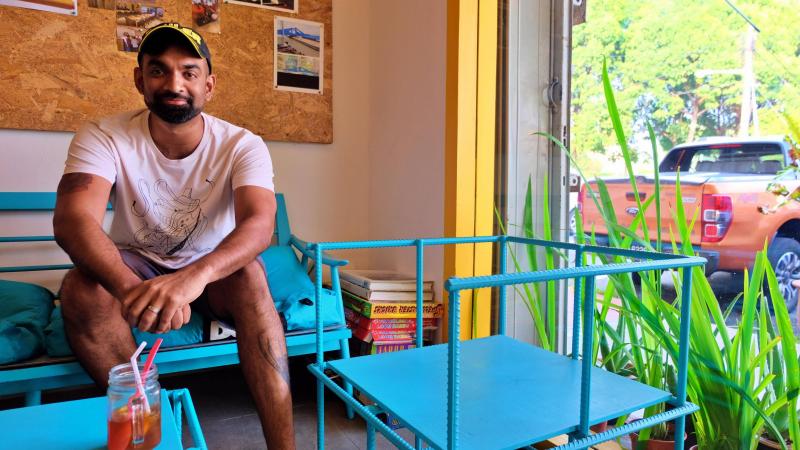
What do you do in free time?
Often I spend time with my family and friends. Spending time with them is very important to me. But if I go home late, my wife and son are asleep. In that case, I would watch a documentary on television before going to bed.
Have you ever thought of changing your career?
In this industry, you can not be too comfortable. You need to always engage with new things. After a few years, I started doing work behind the scenes, being the producer for [a programme about] cooking and travel plans. You need to get involved with everything if you want to succeed in this industry.

Your favorite football player?
Diago Maradona. I met Maradona at the 2014 World Cup and it was an amazing experience. I said to myself, "I have to take a picture with him because this opportunity comes only once." I walked towards Maradona and asked for permission to take pictures. He did not like the first picture and asked to take it again (laughs). The second player I like is Marco Reus because I'm a fan of Borussia Dortmund.
How do you see the development of local football?
I like the improvement shown in the local football community. Not only for national teams but also for state (club) teams. It all began to change after Malaysia won the AFF Suzuki Cup 2010. At that time, interest in the National Football Team began to flourish and people began to go to the stadium. The most important thing is that everybody is interested in local football.

